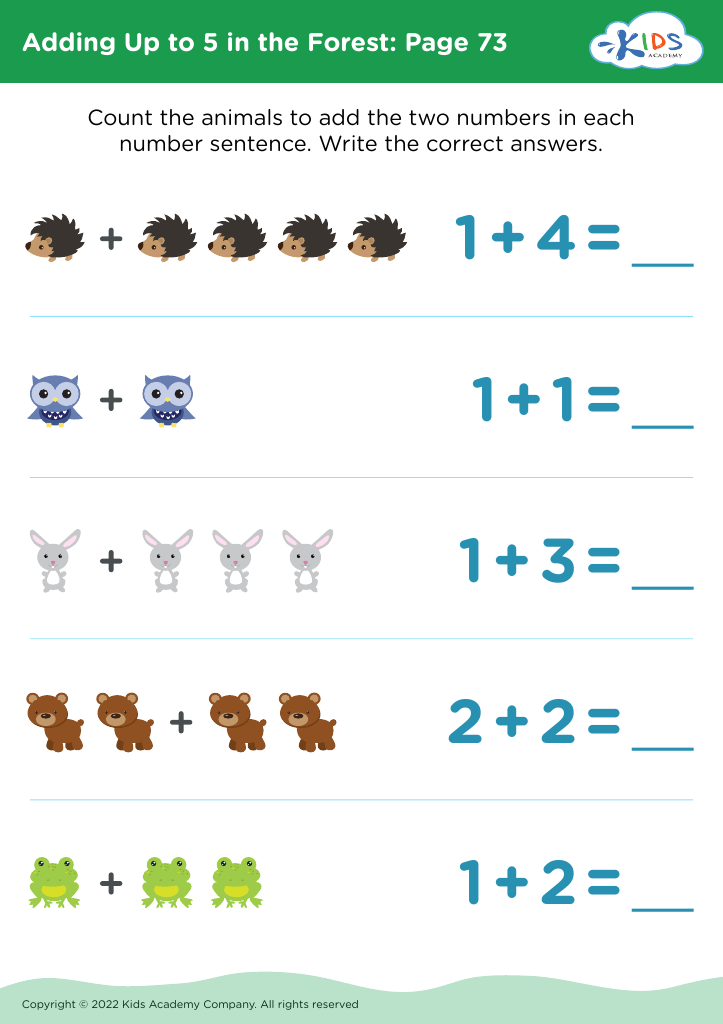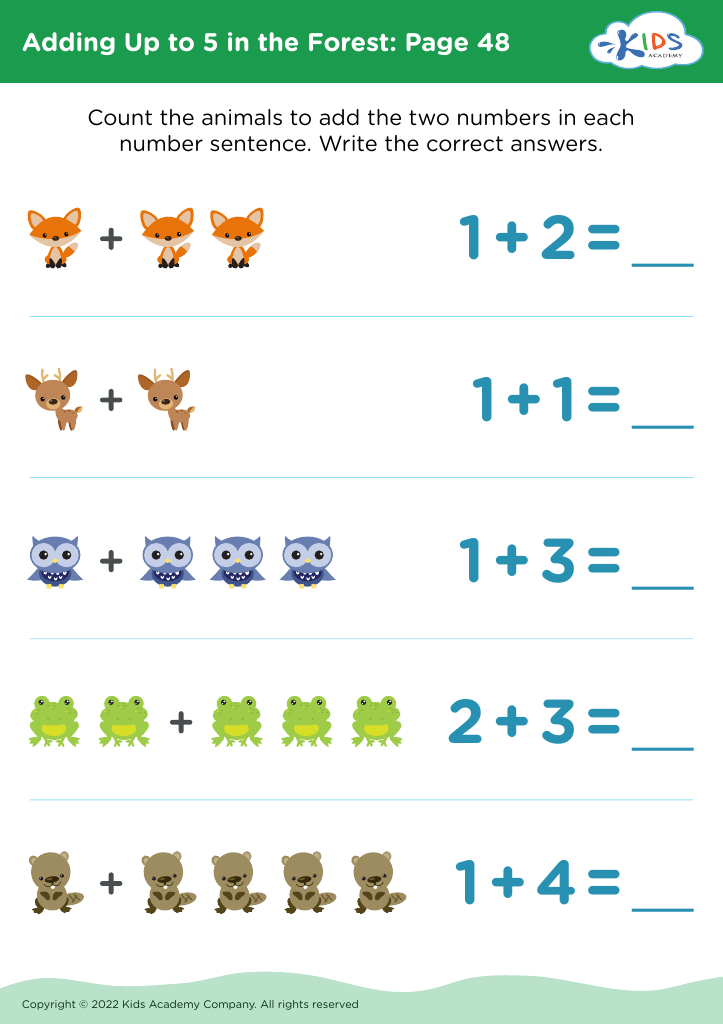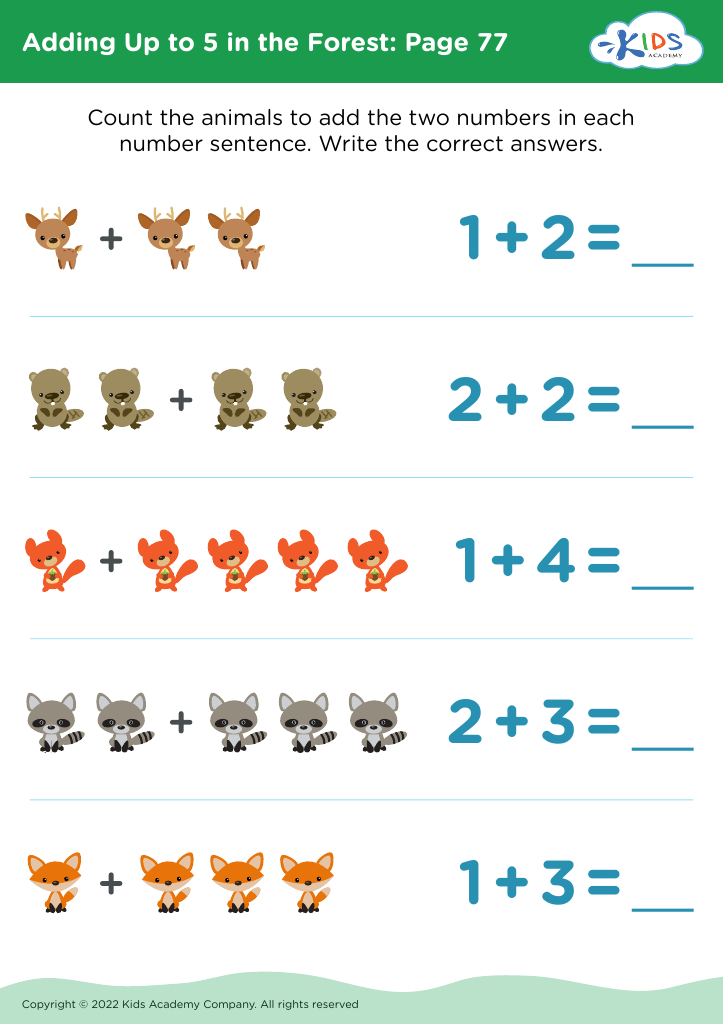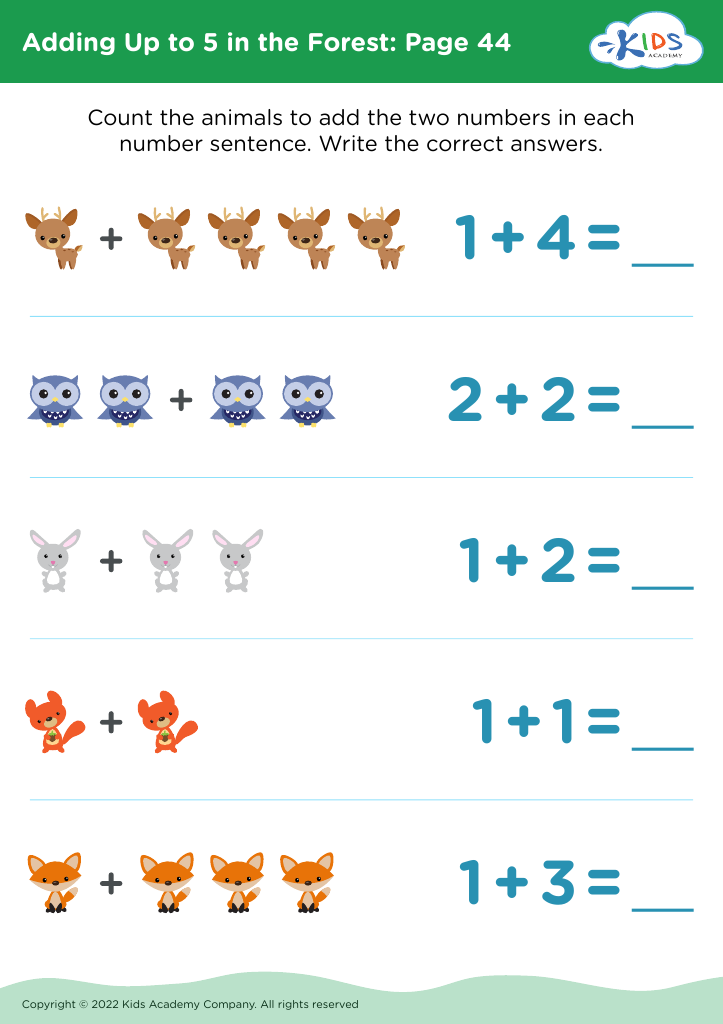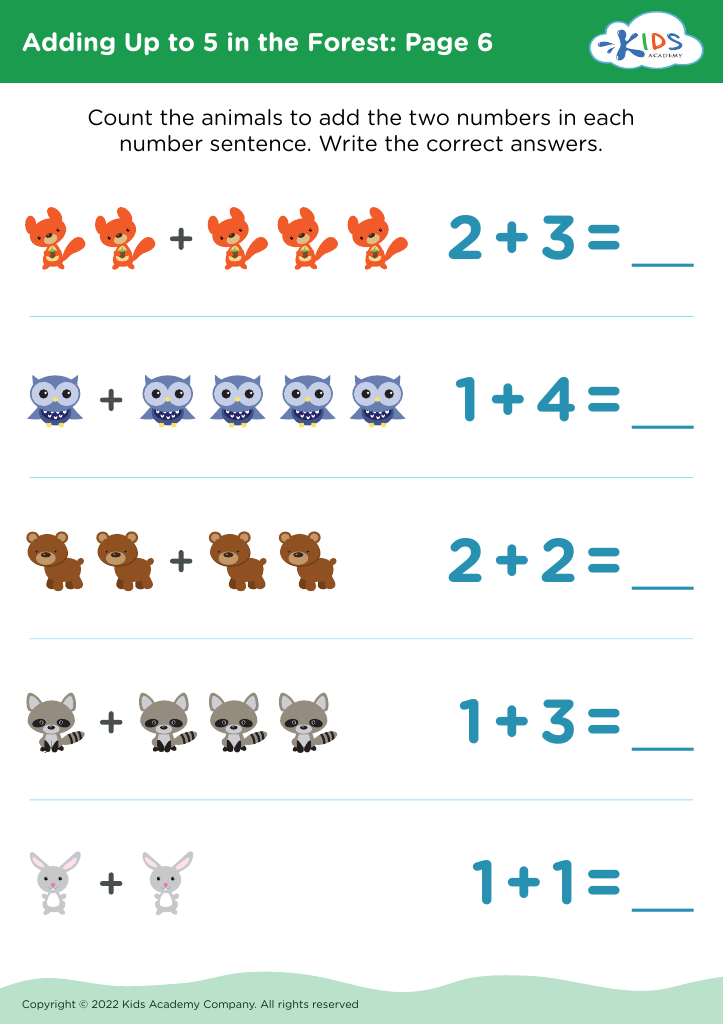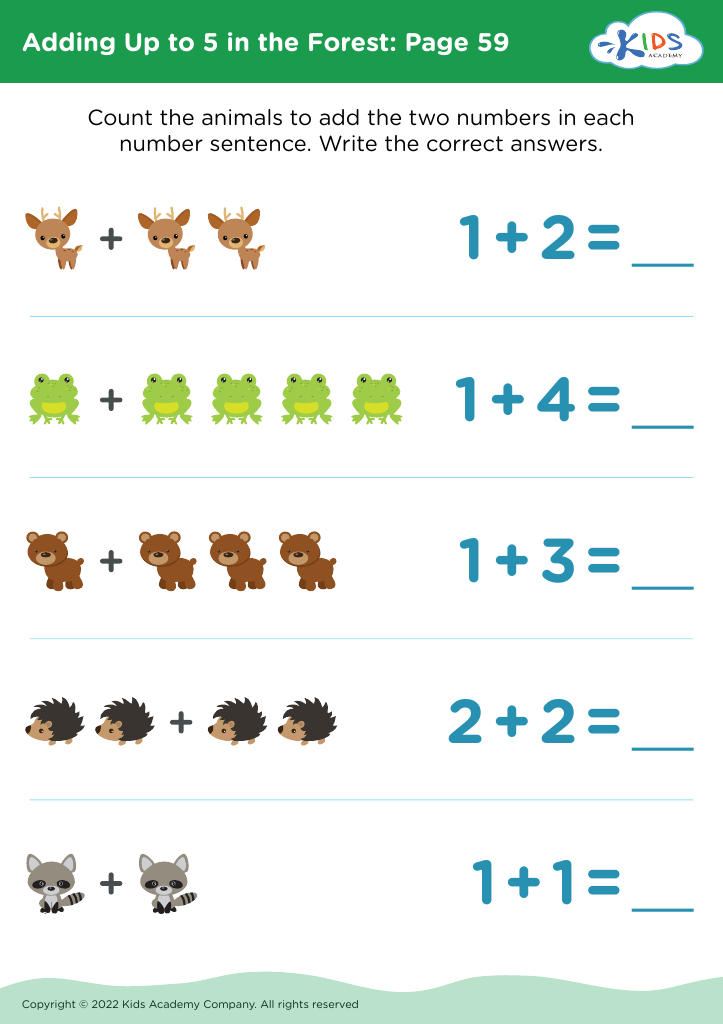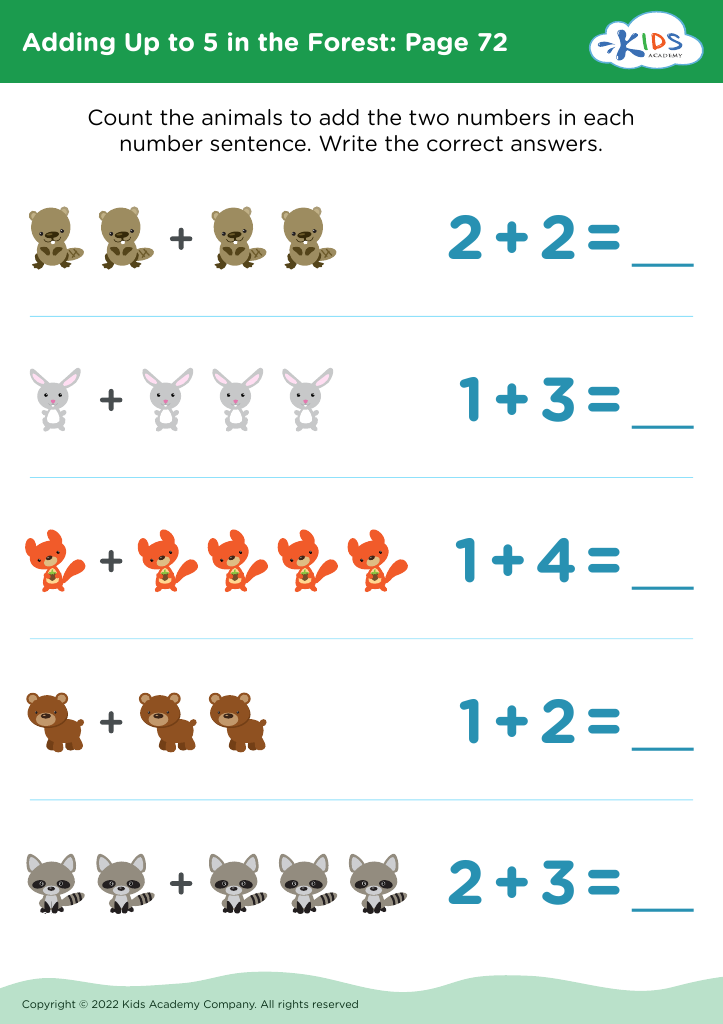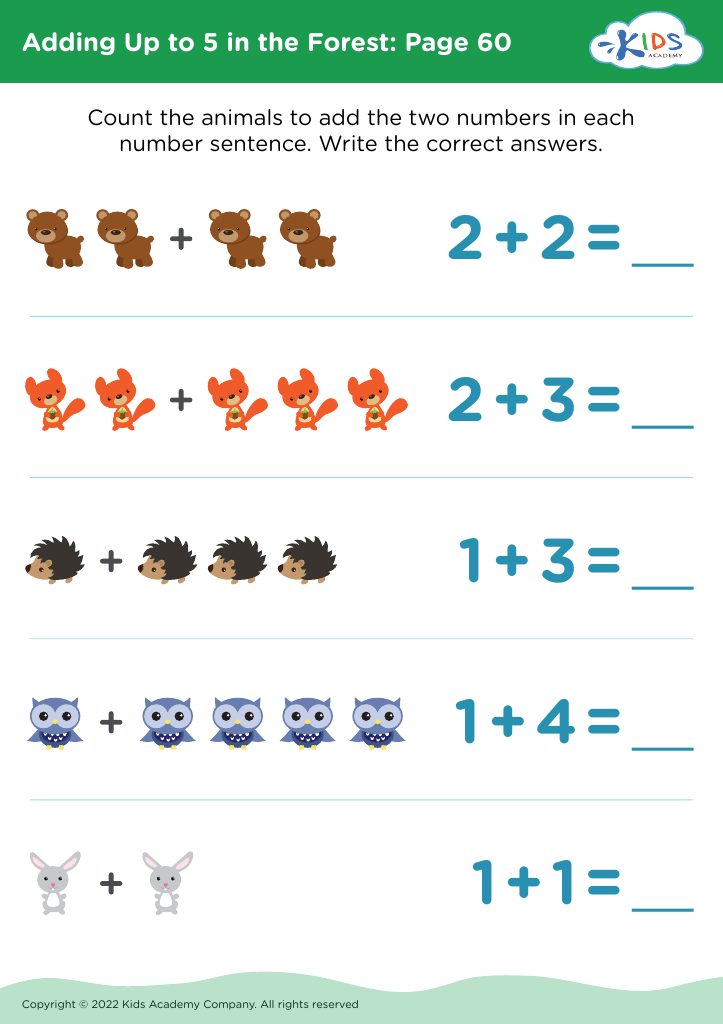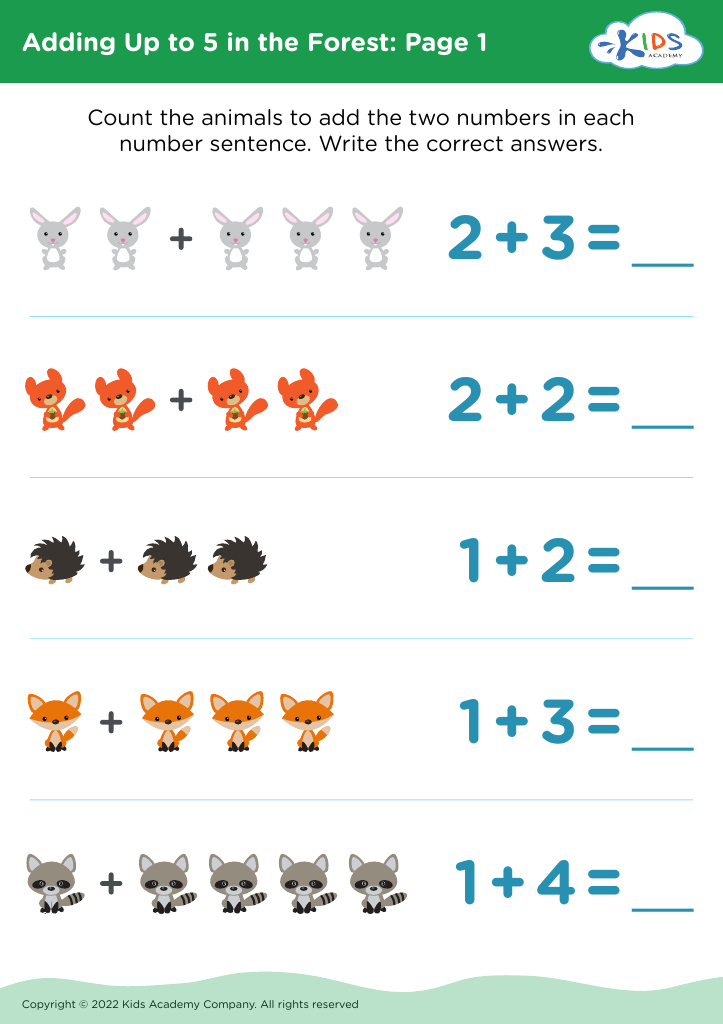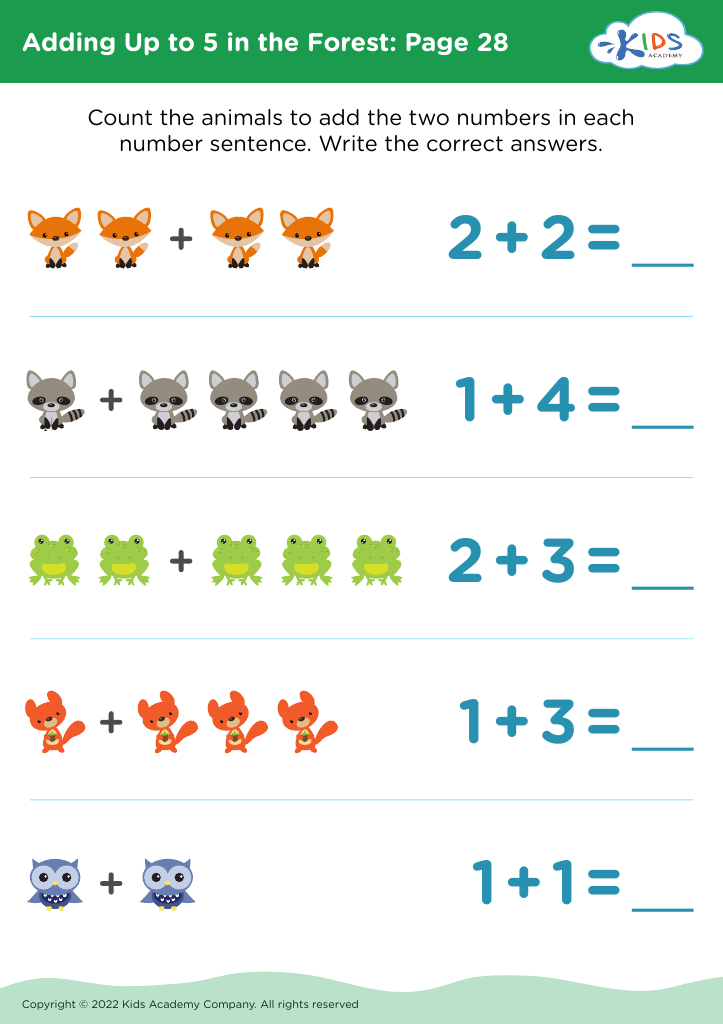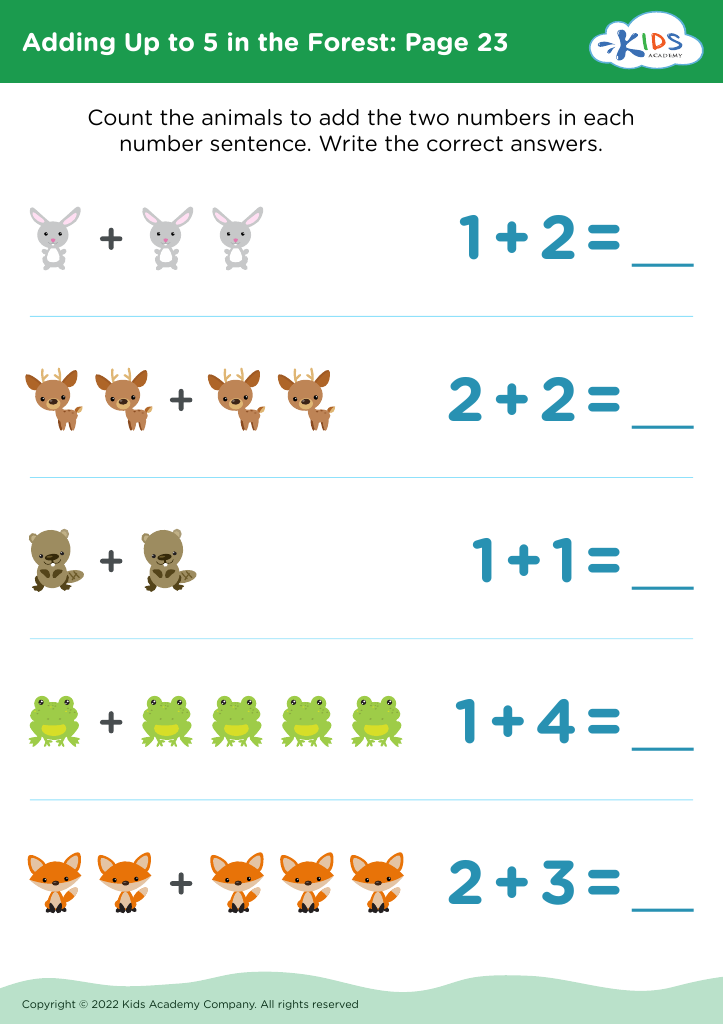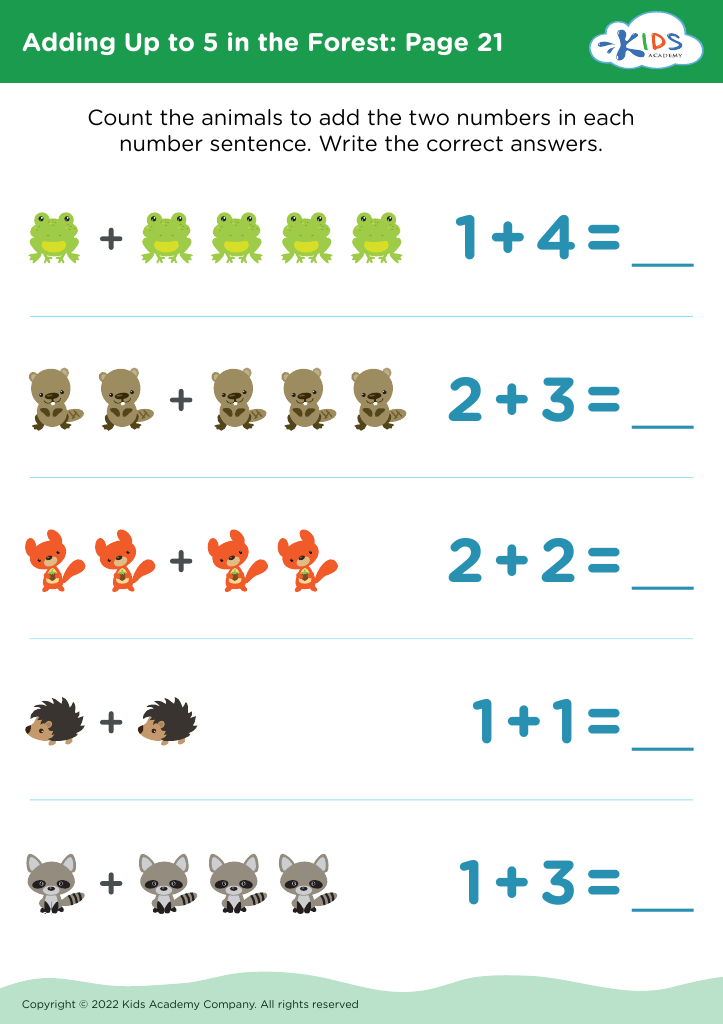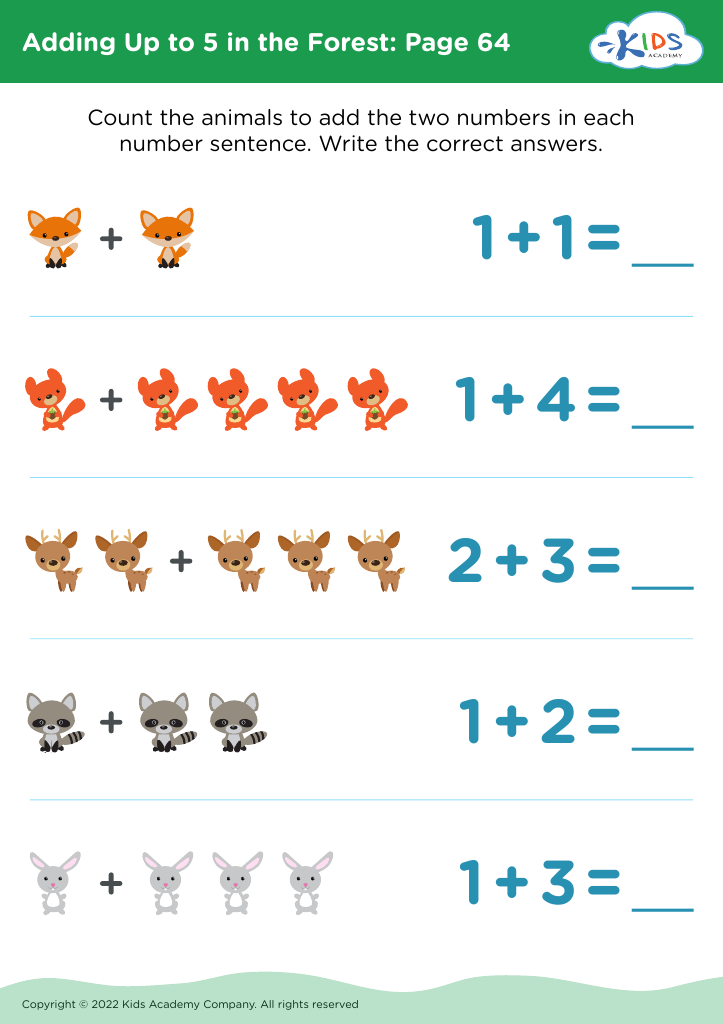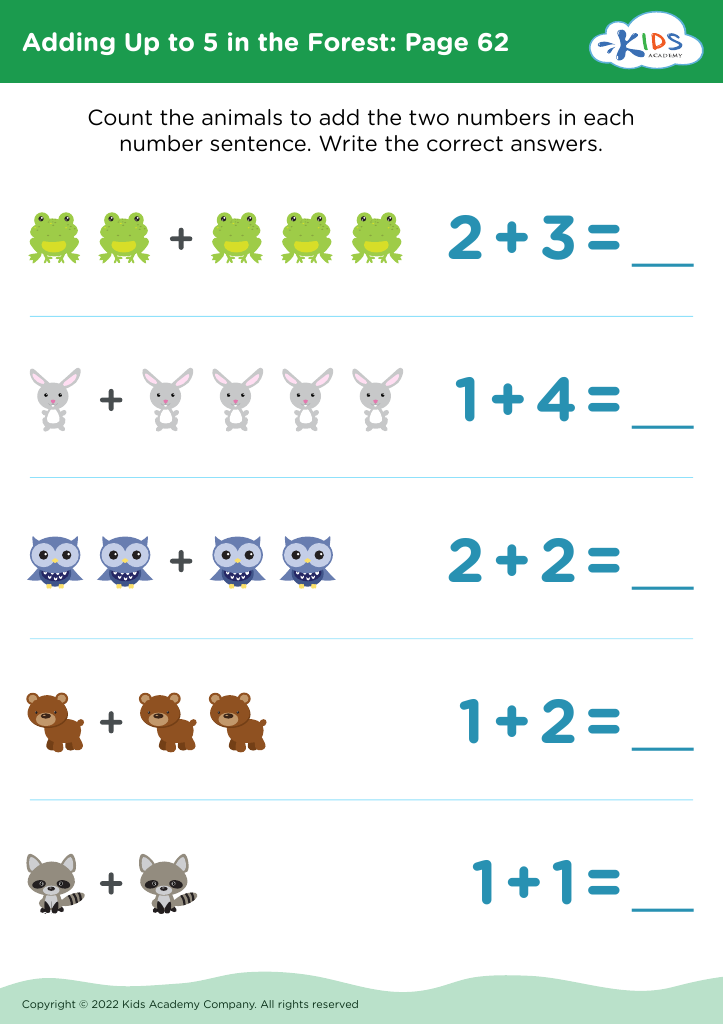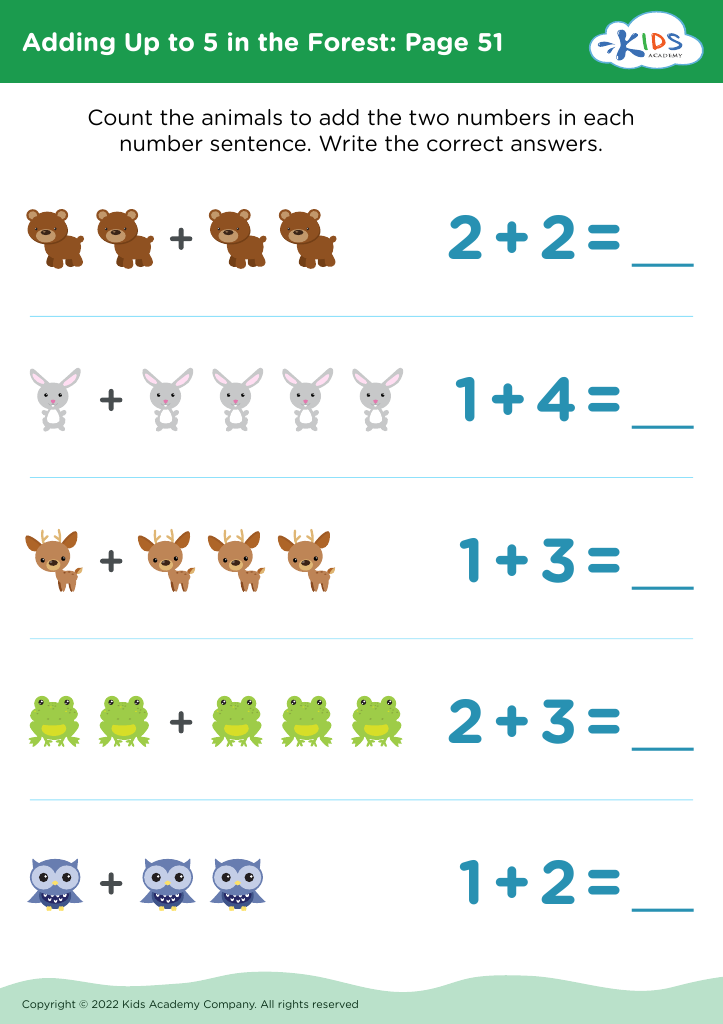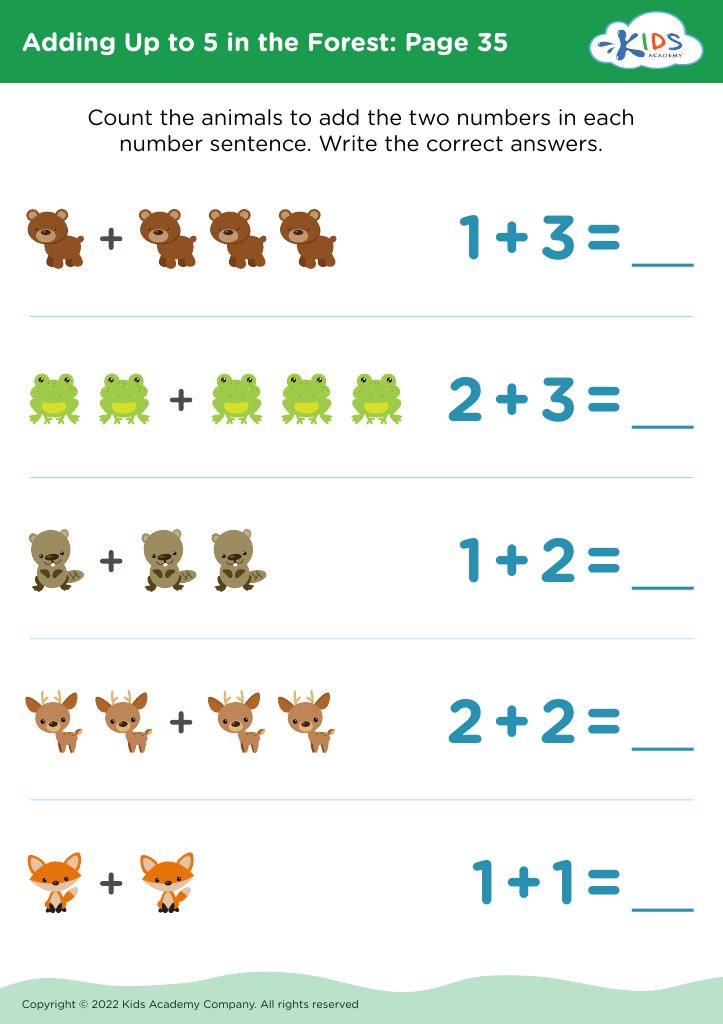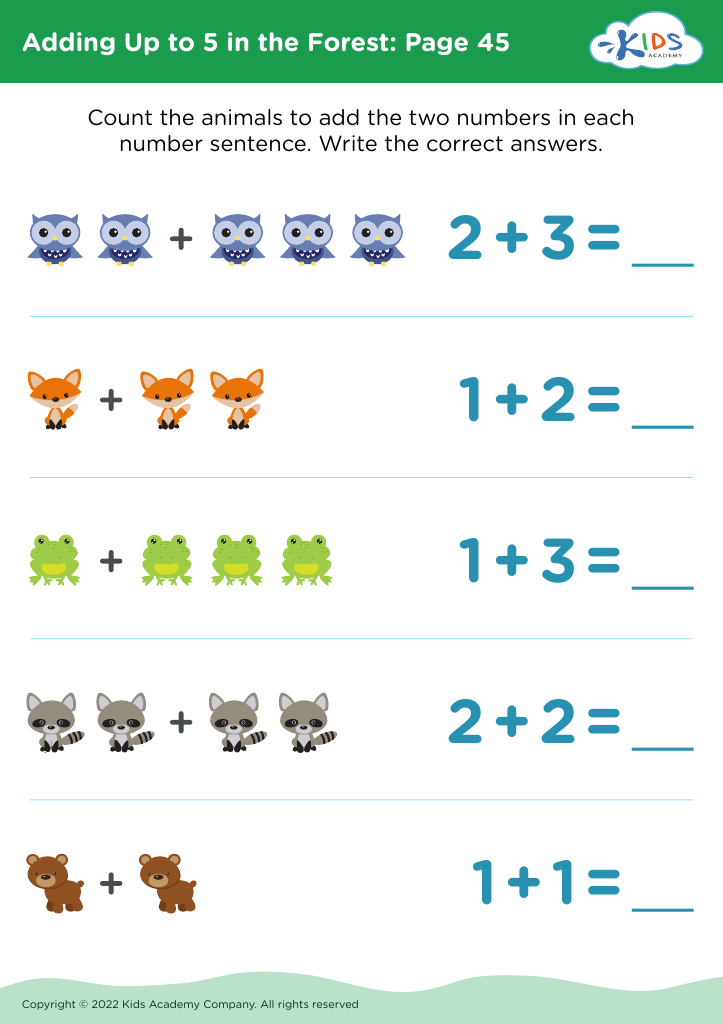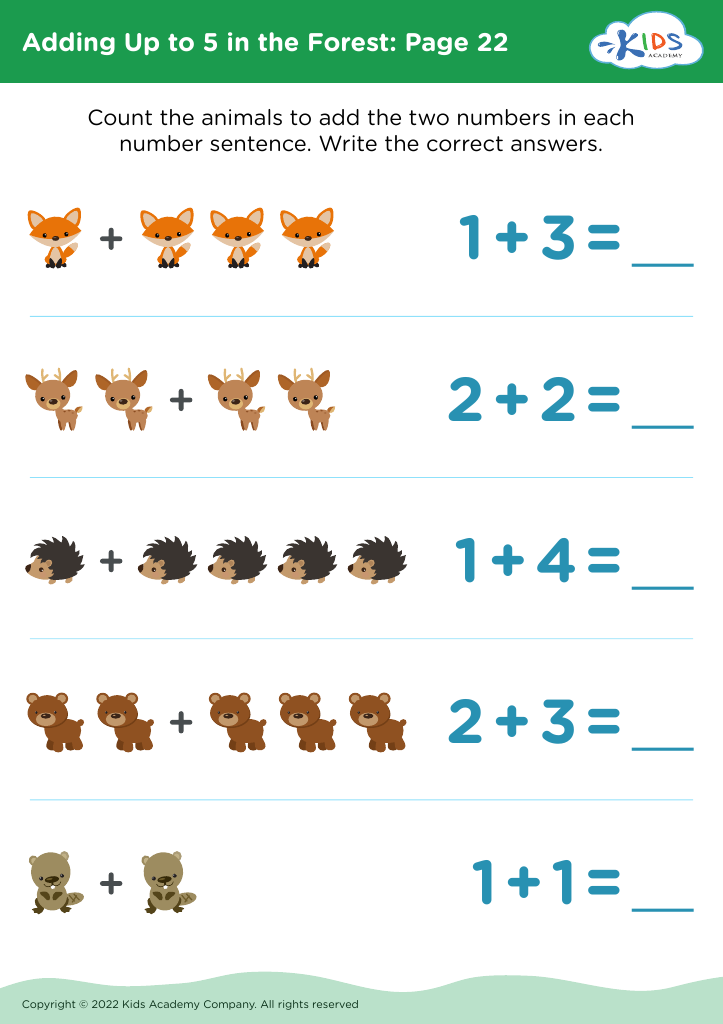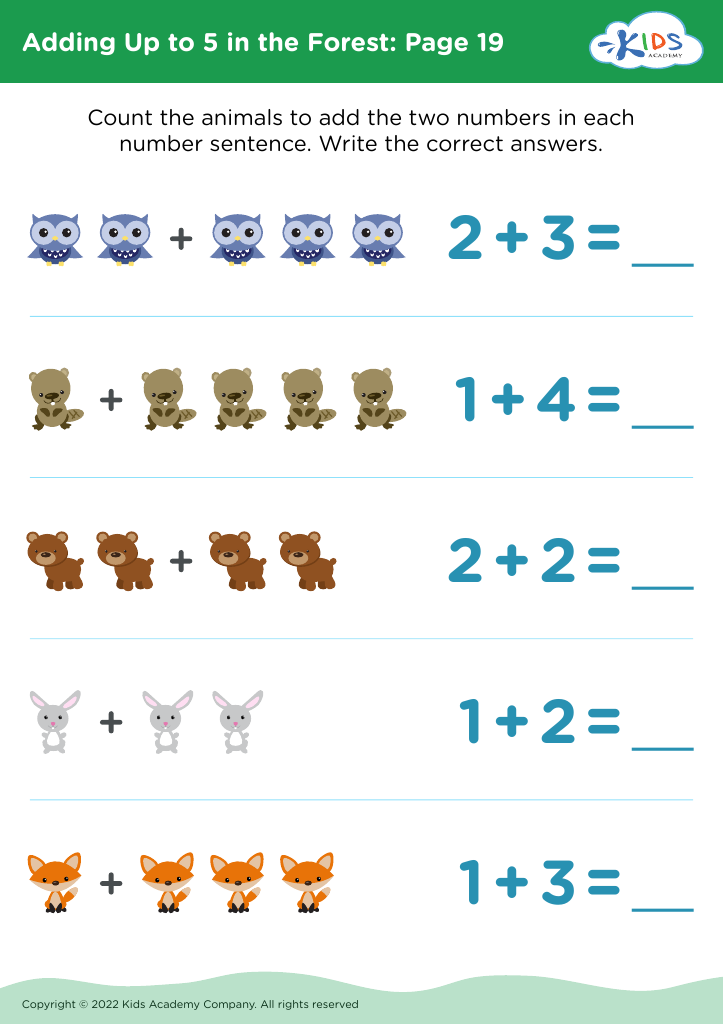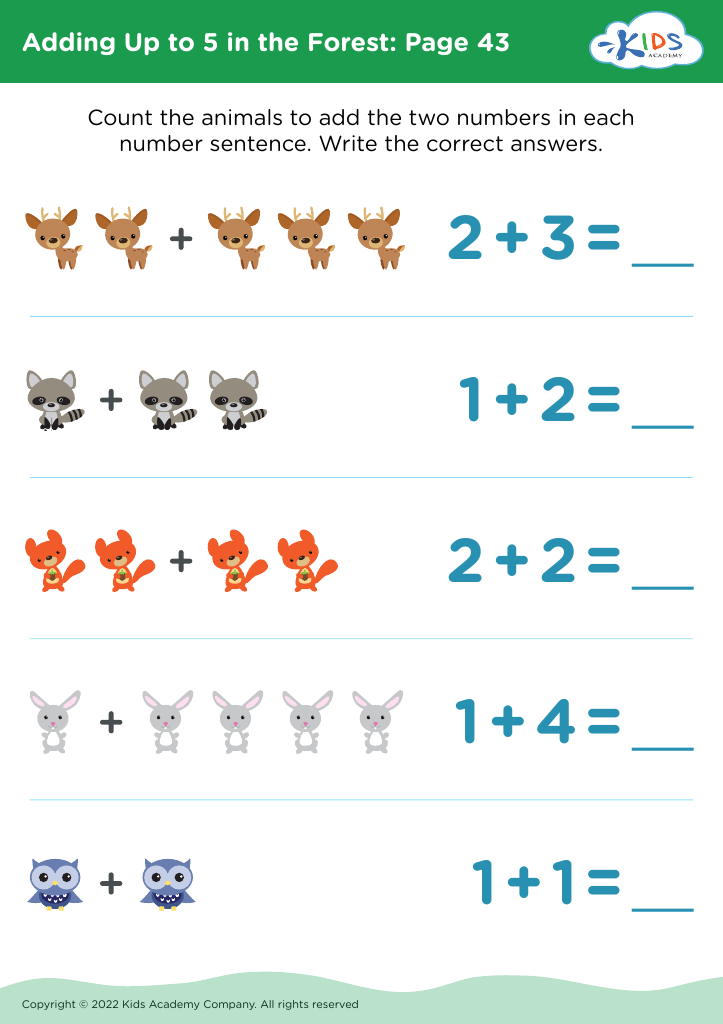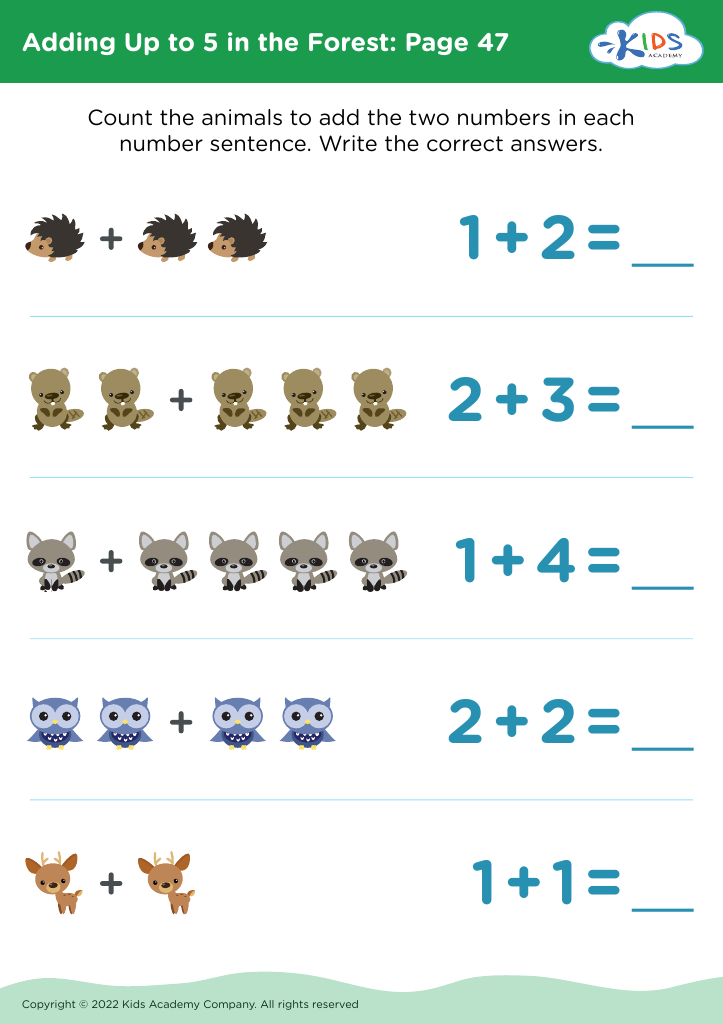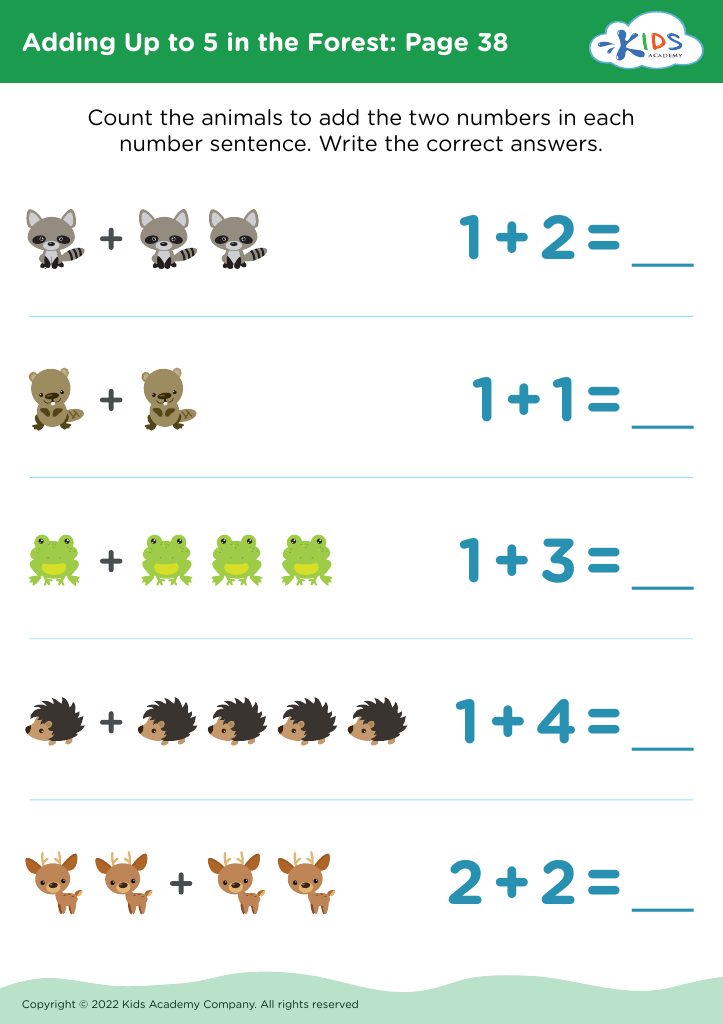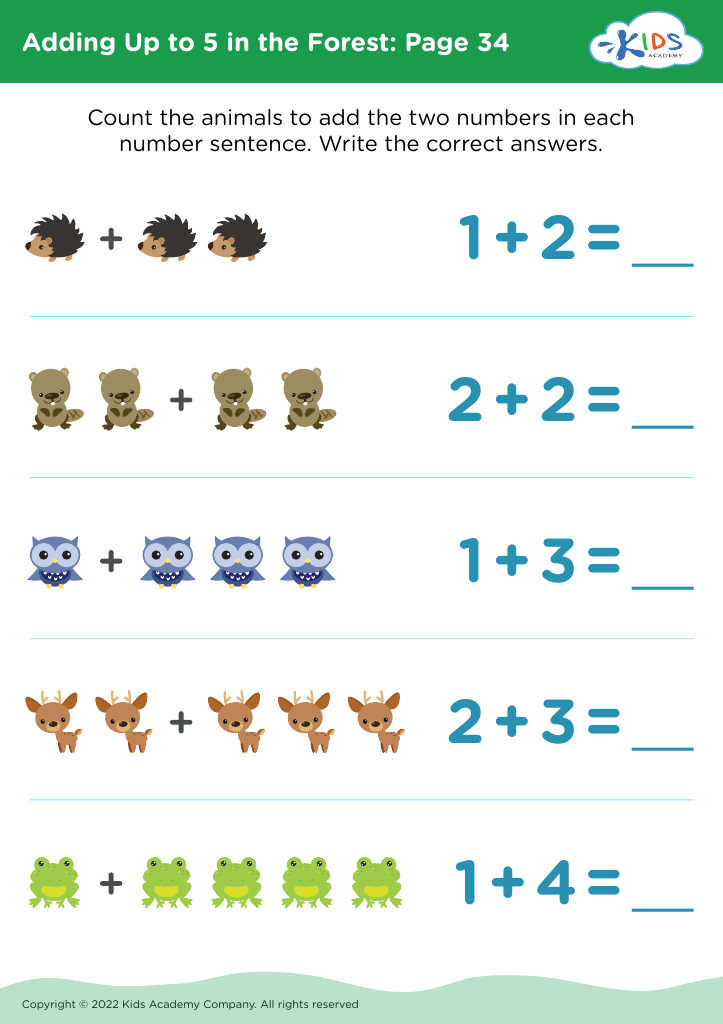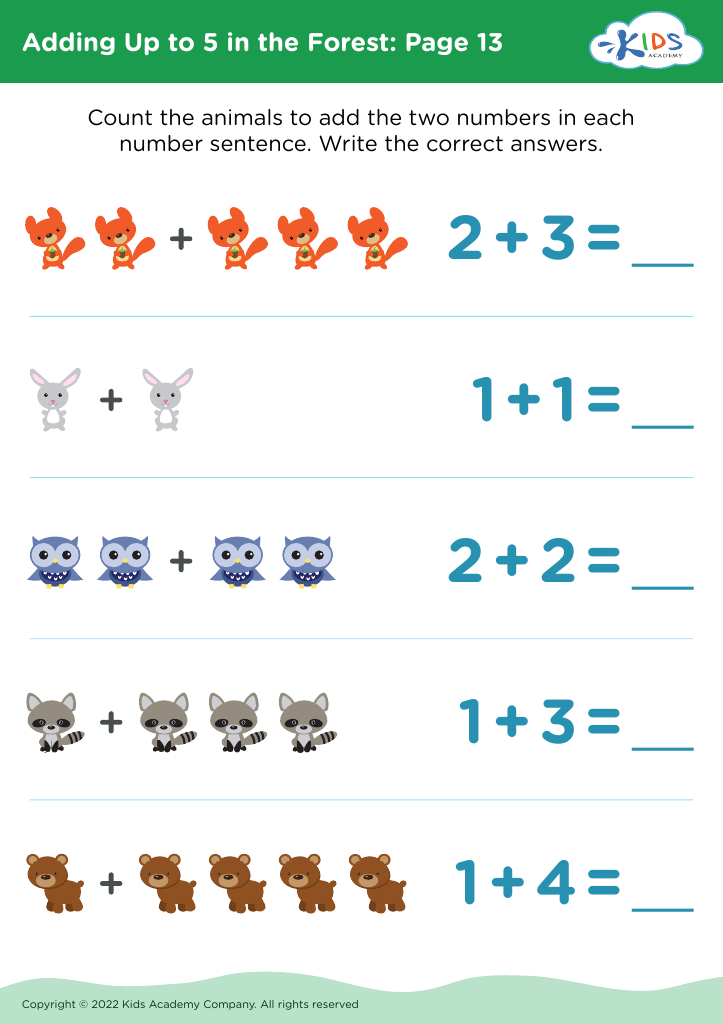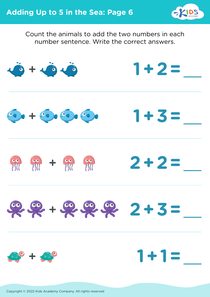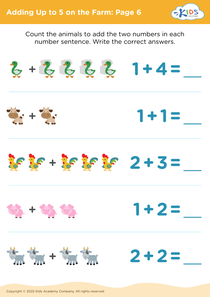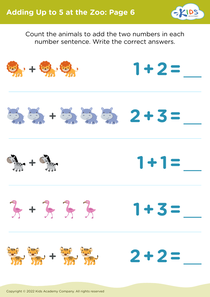Counting practice Adding in the Forest Worksheets for Ages 3-9
43 filtered results
-
From - To
Discover the enchanting world of math with our Counting Practice: Adding in the Forest Worksheets, designed for ages 3-9! These captivating, forest-themed worksheets invite young learners to join woodland creatures on a mathematical adventure. They will develop essential counting and addition skills while exploring engaging, age-appropriate challenges. Perfect for preschoolers to third graders, our worksheets make learning fun and effective. Boost your child’s confidence and abilities in a vibrant, interactive way. Whether a beginner or looking to reinforce skills, our comprehensive collection meets every educational need. Let the forest adventure begin and watch your child’s math skills flourish!
Counting practice, particularly through engaging and themed activities like "Adding in the Forest" for children ages 3-9, is vital for early childhood development. This formative period is when foundational arithmetic skills are most effectively developed, and integrating counting within a playful, story-driven context can significantly boost a child's learning experience.
Firstly, such educational activities make learning enjoyable, thus fostering a positive attitude towards math. When children see math as fun, they are more likely to engage actively and persist in solving problems, which is crucial for building confidence and competence. "Adding in the Forest," for instance, could feature familiar forest creatures and scenarios that captivate children's imaginations, making abstract concepts tangible and easier to understand.
Secondly, practical counting exercises enhance cognitive development. They help children develop number sense, a fundamental building block for all subsequent math learning. By manipulating objects within a story, children practice one-to-one correspondence, which is counting each object once. This builds the understanding of quantities and number relationships.
Lastly, these activities often involve fine motor skills—like moving tokens or writing numbers—which are crucial for physical development. They also provide opportunities for parent-child or teacher-student interaction, strengthening relationships and facilitating social learning.
In essence, counting practice embedded in creative, thematic activities supports holistic child development—intellectually, emotionally, and socially.
